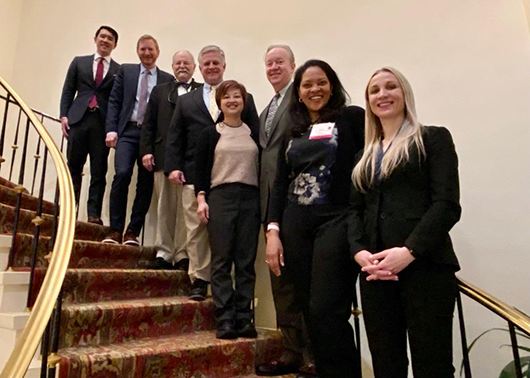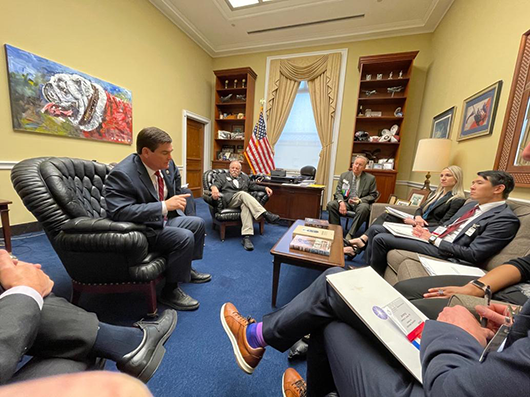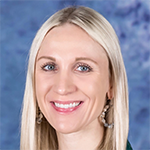It was a Wednesday night when I received a consult stating “patient with glaucoma here for eye surgery” from an ER colleague.
The patient was in his early 50s with severe end-stage glaucoma that had stolen vision in his right eye, leaving him no light perception and a tiny central island remaining in the left eye, from which he saw 20/40.
While his intraocular pressures were within normal range, he had already suffered irreversible vision loss from years of poorly controlled glaucoma. The patient stated he had periodically seen a "glasses doctor" who had initiated topical therapy. Unfortunately, due to various socioeconomic and geographic barriers, years of inconsistent follow-up and non-compliance led to advanced disease. Fortunately, the patient did not need emergent surgery, but he did need access to an ophthalmologist who could medically and surgically manage his advanced glaucomatous disease.
Feeling a personal duty to protect this young man’s only eye, I spent weeks communicating with pharmacy and our financial aid department to ensure this patient would finally receive the health care he deserved. I didn’t realize it then, but there I was, a first-year ophthalmology resident, beginning my advocacy career.
Fast forward a few months, and I am sitting in the office of U.S. Rep. Buddy Carter of Georgia, wearing an Academy “Advocacy Ambassador” name badge and thinking, “I am probably the least experienced person here. How did I earn this opportunity?”
After a fleeting moment of insecurity, I remembered my monocular glaucoma patient, and realized why I was there. I was there to advocate for him. I was there to make sure our patients receive timely access to medical and surgical eye care without the barriers placed by the insurance authorization process and step therapy requirements. I was there to protect vision.
Representing the beautiful state of Georgia, my colleagues and I spoke to Rep. Carter and his staff about maintaining a fair and stable federal payment system that would support continued fair reimbursement for physicians. Our group emphasized that continued payment cuts may exacerbate physician shortages and negatively affect patients’ timely access to eye care and result in sight-threatening complications.
My experience at the Academy’s Mid-Year Forum 2022 taught me that there are many levels of advocacy, and as resident physicians, our advocacy efforts often begin with individual patient care in our clinics and operating rooms.
Advocacy begins with awareness and educating ourselves early on in our career on the issues our profession faces and ways we can bring these issues to light.
Advocacy is listening to our patients, understanding their barriers and connecting them to resources that can provide them the social and financial support they need to seek ophthalmological eye care.
Advocacy is using patient experiences to pursue research projects to better study complex eye disease in order to develop individualized treatment strategies. Only once we recognize the power and impact we have daily at the individual level, can we effectively serve our patients on a higher level.
While meeting with legislators is not always feasible, there are many ways to protect our patients and profession at the state and federal level, such as donating to your state’s political action committee and the Academy’s OPHTHPAC® fund. The Academy’s Surgical Scope Fund is another excellent tool to maintain high standards of surgical safety by opposing overreaching optometric surgery initiatives. With our individual, state, and federal efforts, we are always advocating for our patients, whether we are in a clinical setting or on Capitol Hill.
Even with little political experience, I felt adequately prepared and even empowered to speak on behalf of our patients and specialty. If I am capable, so are you. So, I invite all physicians to take the same steps that I am to promote our specialty and protect our patients.
 |
|
Pictured from left to right: Chris Kuang, MD, Jeremy Jones, MD, Spurgeon W. Clark, MD, U.S. Rep. Drew Ferguson of Georgia, S. Anna Kao, MD, Bret Crumpton, DO, Ninita Brown, MD, PhD, Maja Magazin DO.
|
 |
|
The Academy’s Georgia contingent meets with U.S. Rep. Austin Scott.
|
 |
About the author: Maja Magazin, DO, is a PGY-2 ophthalmology resident at Medical College of Georgia at Augusta University. She was sponsored to attend the Mid-Year Forum by the Georgia Society of Ophthalmology/Medical College of Georgia. |